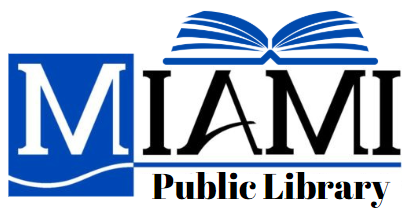Don't forget to join us tomorrow for the second annual Family Health Field Day as part of the Ottawa Counts Arts Festival! Miami Public Library's Health Literacy Program, along with Health Vendors and Fitness Groups, will bring information and fun activities to this event. Enjoy Samba dance lessons, healthy cooking demonstrations, games, and more! Learn more here: https://artsandhumanitiesok.my.canva.site/ottawacountyartsfestival?fbclid=IwY2xjawJadhZleHRuA2FlbQIxMAABHeMHqz4ESq965aJfOwWGTJPJJBj1kuTIjPN_0VSbo9gjo0kvrnf2jZC-qw_aem_AZ0iijFQkZt6Ie7BA_-vtg#family-health-field-day This event will be located on Historic Route 66 in Commerce, near the Commerce Post Office. We hope to see you there! #FamilyHealthFieldDay #FamilyHealth #HealthLiteracy #SambaDancing #HealthyCooking #MoreThanYourGrandmasLibrary
As part of the Oklahoma Bar Association’s 2025 Law Day celebration, lawyers across the state will be offering free legal advice through the Ask A Lawyer hotline on Thursday, May 1, 2025. From 9 a.m. to 9 p.m., Oklahoma residents can call 405-429-4290 or 918-340-5297 or email AskALawyer@okbar.org to have their legal questions answered by volunteer lawyers at no cost.
Business & Job Seeking
Health & Wellness
Education
Govt
Legal
Tech Skills
News and More
Bear: The Life and Times of Augustus Owsley Stanley III by Robert Greenfield Greenfield traces the life of the Grateful Dead benefactor and LSD chemist who played an indelible role in 1960s counterculture, describing how he helped finance and record the band’s early works. Blood Vow by J. R. Ward Isolated from his fellow Black Dagger Brotherhood recruits by a personal tragedy, talented fighter Axe…
100 Days of Real Food: Fast & Fabulous by Lisa Leake Leake provides family-friendly recipes, featuring natural foods, and offers advice on meal-planning with seasonal sample menus and shopping lists. Black Elk: The Life of an American Visionary by Joe Jackson Jackson chronicles the life of the Native American healer and holy man, known for his testimonial “Black Elk Speaks,” who fought at the Little…
Absolutely on Music: Conversations with Seiji Ozawa by Haruki Murakami An intimate conversation about music and writing illuminates the perspectives and shared interests of the internationally acclaimed author of “Colorless Tsukuru Tazaki and His Years of Pilgrimage” and his close friend, the former conductor of the Boston Symphony Orchestra. Because of Bethlehem by Max Lucado Lucado explores the story and meaning of Christmas for believers,…
Never miss an event at Miami Public Library!
Sign up to receive our email newsletter!
By submitting this form, you are consenting to receive marketing emails from: Miami Public Library. You can revoke your consent to receive emails at any time by using the SafeUnsubscribe® link, found at the bottom of every email. Emails are serviced by Constant Contact












